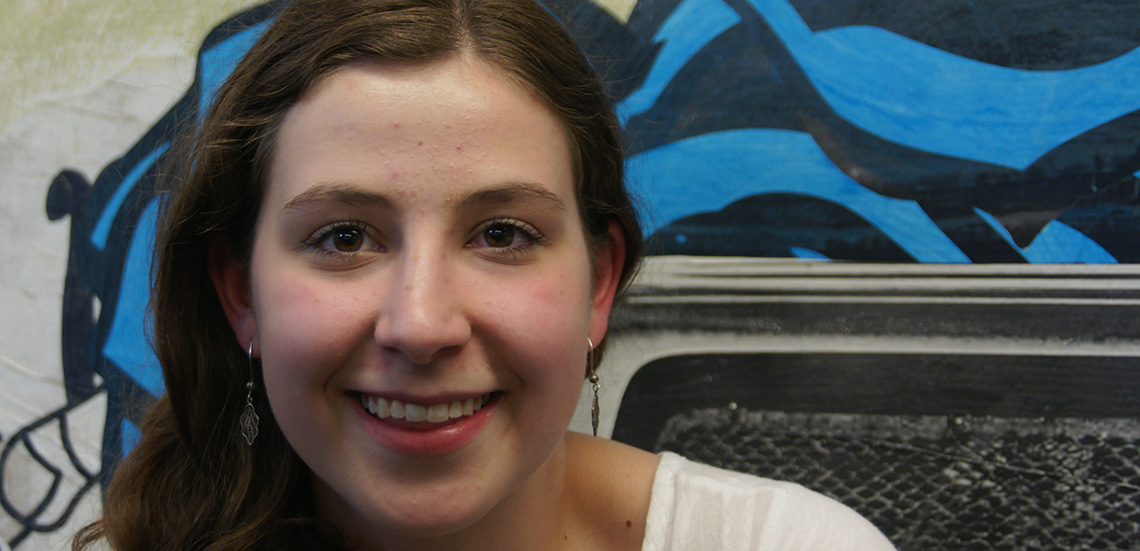When I first started work I got a purple T-shirt. It was about two sizes too big, and the back sported a giant picture of a condom with the bolded words “No Glove No Love, Ask me for Condoms”. This shirt haunted me. I had taken a lot of big steps that year. I had joined the Young Women’s Project (YWP) as a peer educator, attended sexual health trainings, led focus groups, but this, this was impossible. There was no hiding in the crowd with this shirt on. No, this shirt was my scarlet letter, a Giant Purple Condom.
The rule was each peer educator should wear the shirt twice a month, so that peers knew who they could get condoms and information from.
The first day I wore the shirt I never took off my back pack. The front was much less menacing. A silhouette of a groups of teens with the words “Youth Health Educator.” That, I could handle. All day I avoided showing my back. I masterly timed my backpack’s removal so that there were only seconds in which my back was bare before the condom disappeared behind the backing of my desk chair. Before the day was done I felt pretty confident in my newfound strategy. This could work, I could get through this year.
It took a long time for me to realize that I couldn't be a good peer educator if I was embarrassed by my job or by sexual health in general.
For years I have been really interested in gender and in biomedical science, but I wasn't sure how I might combine the two interests into one career. When I got the opportunity to be a peer educator it sounded perfect except that I was, and to a much lesser extent still am, quite shy.
Last summer YWP chose me to teach gender, sexuality, and healthy relationships to a group of 70 future health educators. I felt an odd combination of amazement and terror. I could not be shy or quiet because my role demanded more than that.
I was teaching many students who regularly used homophobic slurs, who didn’t know what it meant to be transgender, and who didn't understand what consent was. Yet four days a week for a month I went into a classroom at Howard University to teach these concepts to teenagers who really should have learned them in health class. No miracles occurred, but I think I planted a seed. I got students talking and considering other points of view. The knowledge of that is incredible especially because training peer educators can create exponential change. I decided to continue on this path. I became a part of a youth led team at YWP that was designed to help draft and pass a new set of District of Columbia Health standards. My focus was on making the standards more inclusive, comprehensive and less hostile in their approach towards sex.
Now as a senior, I am seeing the standards through their final leg of approvals. This fall I will testify for the third time before the DC Council which will make its final decision whether to accept our new draft.
It is one of the biggest accomplishments of my life, to see something I worked for and believed in turned into actual legislation, to see the fear and shame I once had put to use as a catalyst for widespread change. I would without a doubt do it all over again, in fact I hope to, by continuing to be a peer educator and health advocate in college and maybe even by pursuing a career in public health.



